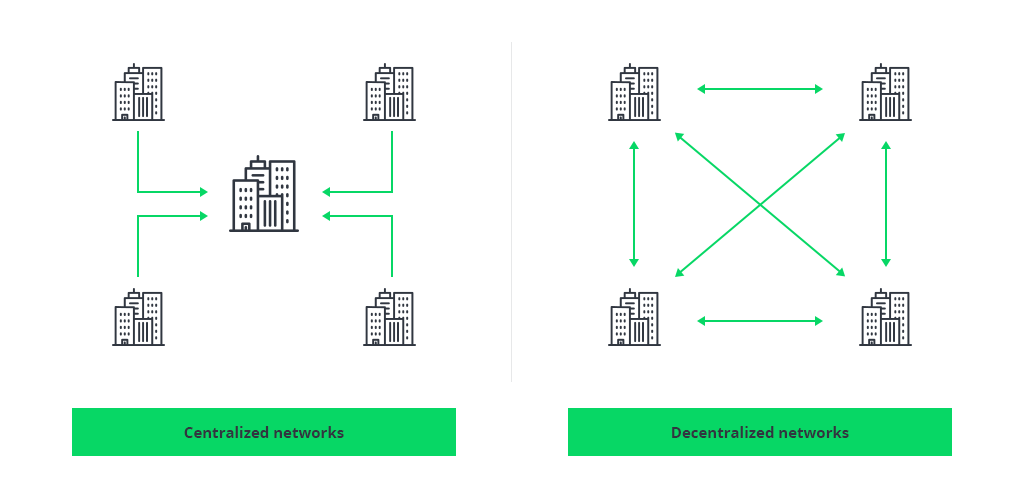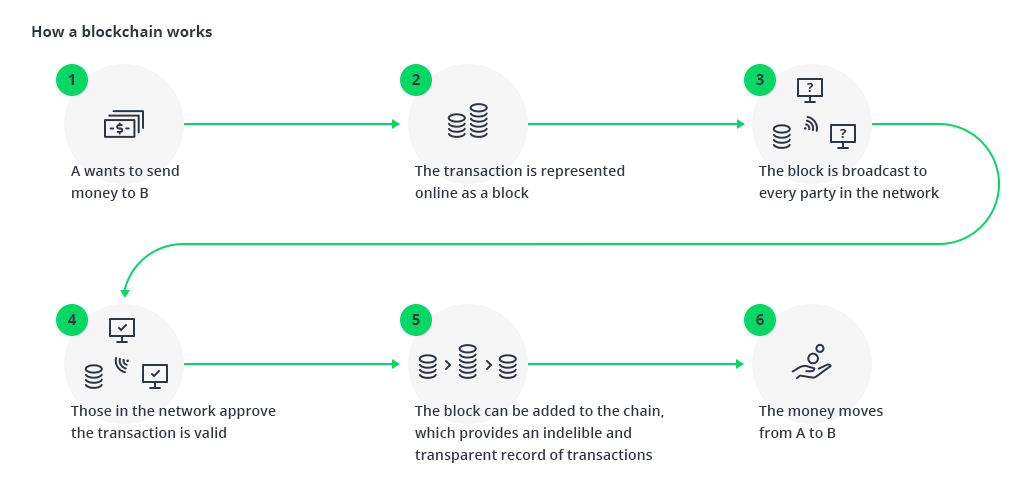As you may have already noticed, Blockchain technology is the center of attention in current news headlines. The technology has been deemed “disruptive,” and the future of Blockchain is commonly associated with one that could “alter life as we know it.” However, there remains a bit of confusion about what exactly Blockchain technology is, where it’s used, who's using it, and how it’s developing. In this article we will clear up some of that confusion for our readers, and provide important insights on the direction in which the future of Blockchain is treading.
What is Blockchain?
The principles of Blockchain technology are not as alien as they may appear. A Blockchain is a decentralized and secure database built over a secure network used to store data and relay information. Blockchains record and relay information and transactional data in blocks. Parties involved in these transactions can remain anonymous while enjoying security, transactional transparency, speed, and cost efficiency.
How Does Blockchain Work?
What does a blockchain look like? Data in a Blockchain gets recorded in a linear matter, with each new block within a Blockchain containing data from all previous blocks. Imagine a block to be sort of like a sheet of paper, filled from top to bottom and front to back, with a date and time,. but with a long code written across the sheet.
The data within these blocks is encrypted through the use of complex cryptographic principles and security algorithms.
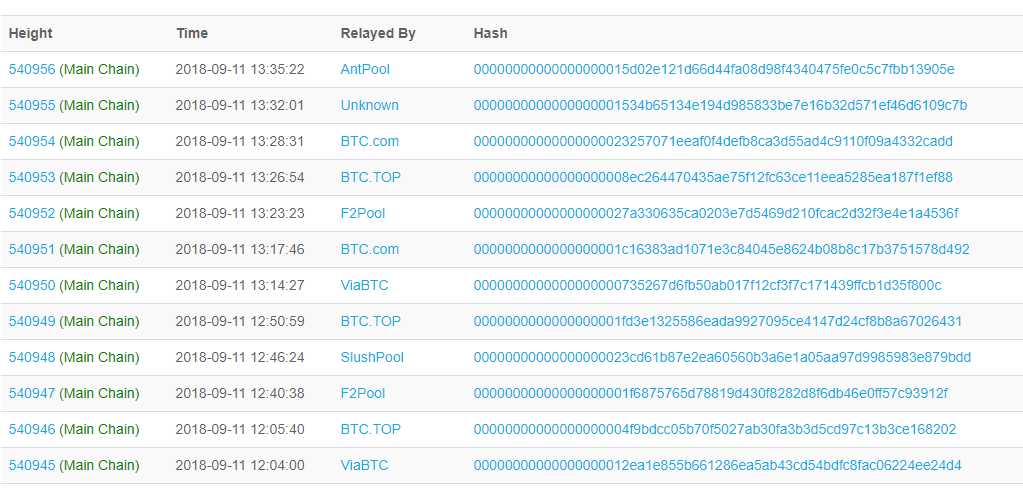
Before being added to a Blockchain, transactions must first pass validation. This validation is performed by miners. For their efforts, miners enjoy monetary reward in the form of cryptocurrencies, such as Bitcoin.
As many of our frequent readers may have noticed already, there is quite a bit of hype surrounding the uses of Blockchain technology - but why? For starters, it’s a technology that will change the world. It can provide decentralization. The data contained and relayed within a Blockchain architecture cannot be controlled by a single entity. Transactions and information stored within are immutable and transparent. Once a transaction is added, it can’t be changed, taken down, or hidden. With regard to transparency, anyone can see what was sent and when. One can assume that there are two individuals behind a Blockchain transaction, but not exactly who and why.
Current Applications of Blockchain
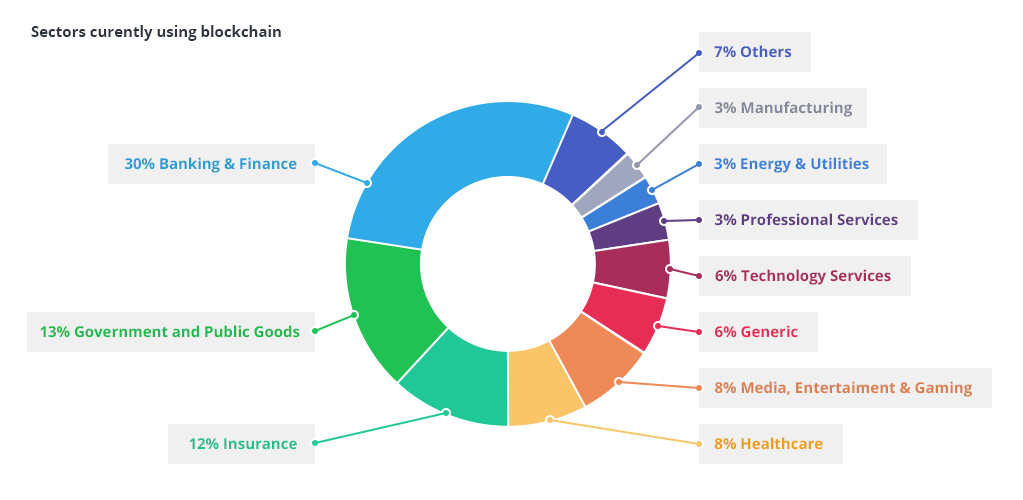
Blockchain technology is already seeing use in quite a few industries that rely on data that is exact, secure, and immutable. Industries are using this technology to gain a competitive advantage over their non-Blockchain competitors.
Popular Blockchain Use Cases
You may be thinking, “great, miners, Blockchain, Bitcoin; so what and who cares.” Blockchain technology, with all its features, can be quite helpful in targeting and solving a slew of issues that impact our lives. Most of them pertain to transparency, trust, data security, and transactional accuracy. As well, there is the avoidance of a need to rely on third parties, and much, much more.
Blockchain supply chain use cases: Through the use of Blockchain technology, manufacturers can identify the origin sources of goods, deliveries, and production activities all through a supply chain management process. This can give average consumers the ability to confirm the source of goods and items that they buy, which can go a long way toward pushing back on counterfeit items or misrepresented foodstuffs. There are a few notable projects that use Blockchain technology for supply chain management transparency, such as Ambrosus, which targets the safety and origins of food products, and Vechain, a Blockchain based platform that allows both consumers and retailers to confirm the authenticity and quality of purchased products.
Blockchain in healthcare today: Another industry for which integrity and transparency provided by Blockchain is important is the pharmaceutical industry. When you’re dealing with medical prescriptions, drug records, patient treatment data, and the transportation of expensive medical equipment and other medicinal items that can spell life or death for a patient – transparency, accurate data, security, and trust are absolute musts. A Blockchain provides all of this. Speaking of which, DHL, a global logistics leader, is working together with Accenture, a global management and professional services company, to integrate Blockchain technology with the pharmaceutical industry to improve serialization accuracy.
Blockchain and energy management: The energy sector is also worth mentioning. For instance, Power Ledger is a project that uses Blockchain as a solution that allows users to trade electric power with one another in exchange for crypto payments. The Power Ledger platform that enables Blockchain solar energy management allows users to sell excess energy reserves in solar panels for profit. This could cut back on the authority of middlemen and electricity providers, as users would function in an environment wherein energy can be shared amongst one another in a transparent manner.
Aside from these industries, there are many more that may see applications of this technological revolution, including real estate, music, politics, education, charity donations, and many other potential industries. For instance, we have:
Aventus is a Blockchain project that grants its users the ability to redefine ticketing supply chain rules.
Rentberry is a company that utilizes Blockchain technology to make the process of obtaining a long-term rental space more secure, transparent, and cost-efficient.
Helbiz leverages Blockchain technology, decentralized cloud servers and smart lock hardware to end the need for intermediaries and third-party involvement in car rental processes.
HempCoin aims to help provide banking services for the cannabis industry by utilizing Blockchain and cryptocurrencies.
Blockchain Impact on Countries
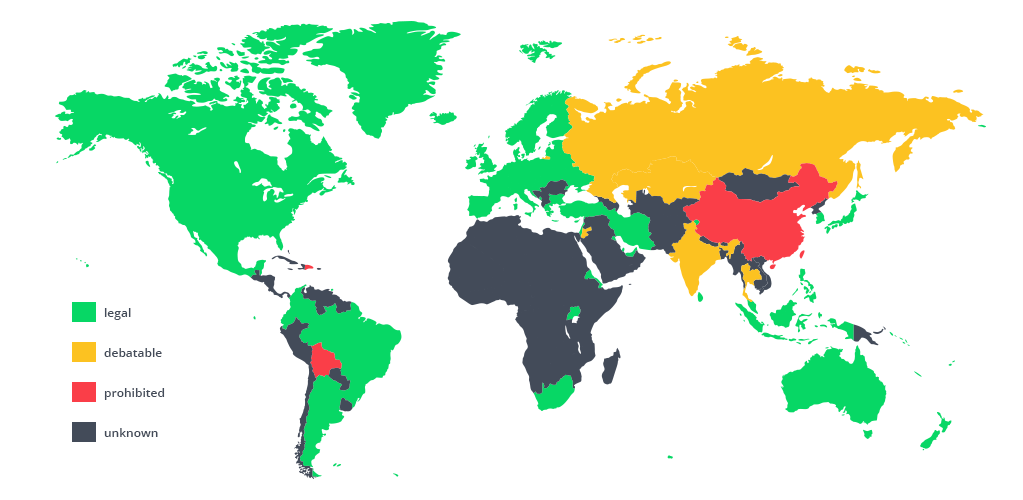
While the exploitation of Blockchain technology can yield tremendous benefits, not all global nations are on the same page with regard to adopting it. There are countries that have been more accepting of the technological change this particular tech can provide, while others are lagging behind.
Estonia is one such nation that has openly adopted the tech and can see how Blockchain technology could change the world. The country has been testing the benefits of Blockchain for at least a decade now. Blockchain is used in Estonian data registries for judicial, legislative, health, cyber security, and banking purposes. Other nations such as Switzerland, Sweden, the United States, and South Korea, to name a few, are quite receptive to the future of Blockchain.
It should be highlighted that, while global nations are generally open to the decentralized database technology, their stances may differ on cryptocurrency use regulation. Regulators are working on means of handling the tech and drafting appropriate regulations so as to not impede its progress and to nurture the social impact of Blockchain technology.
Does Blockchain Have Potential for International Development?

There is a future in our world for international Blockchain development and use. It’s quite clear that there is avid interest in the technology, stemming from regulatory attention, the projects that garner astonishing financing, the cryptocurrency market’s growing market capitalization, and nations like Estonia getting behind the technology and integrating it with all vital aspects of a modern society.
It’s quite clear that there is avid interest in the technology, and many facts prove it. Blockchain enjoys a lot of attention from regulatory bodies, and there appear more Blockchain-powered projects that garner astonishing financing from investors. Additionally, the cryptocurrency market’s capitalization is growing and there are progressive nations like Estonia that get behind Blockchain and integrate it with all vital aspects of a modern society.
Granted, while the future scope of Blockchain technology is bright, it is one that will come at a high initial implementation cost. Its execution will need the coming together and collaboration of corporate, societal, and regulatory parties.
One thing is, however, certain that professionals and companies that take advantage of Blockchain technology now, and take the time to fully understand all of its complexities and benefits, will without a doubt have a dramatic competitive advantage in the future. Considering the fact that the technology’s implementation can be a daunting task, it makes sense to seek out expert Blockchain development services.
You will find out additional information related to this topic here: The Future of the Blockchain Technology
